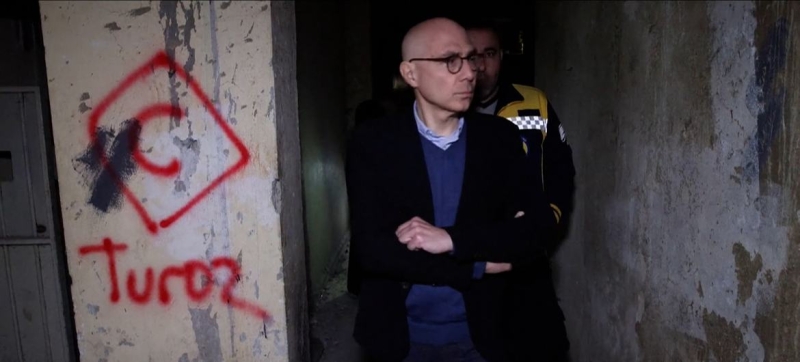
UN High Commissioner for Human Rights Volker Türk in Sednaya prison. UN High Commissioner for Human Rights concludes historic visit to Syria Human Rights
This is a “historic event” – never before has the UN High Commissioner for Human Rights visited Syria, and the UN Human Rights Office (OHCHR) has had to monitor and document violations in the country remotely for decades. This was stated by the UN Human Rights Chief Volker Türk following his visit to Syria.
“I was impressed by the courage, resilience and endurance of the Syrians I met, given the atrocities and trauma they have endured over the years,” Türk said.
Evidence of Tragedies
During his visit, Turk met with victims of serious human rights violations, including a former inmate of the notorious Sednaya prison. “He told me about the ill-treatment he suffered. I can’t even repeat his words about the beatings and torture,” Turk said.
The High Commissioner visited the Jobar district of Damascus, describing it as an “apocalyptic wasteland” where bombings had destroyed every building. He also condemned the use of banned chemical weapons against civilians.
But Turk noted signs of resilience and hope during his visit to Damascus. “I saw people going about their daily lives. They were buying food at the markets. They were drinking coffee. They were visiting religious sites. “Children were playing in the streets,” he said.
However, Syria faces enormous challenges. “Ninety percent of the population is mired in poverty, the health system is on the verge of collapse, many schools are closed. Millions of people are still displaced inside and outside the country,” Türk noted.
He called on the international community to support the reconstruction of Syria and to review sanctions, highlighting their negative impact on the lives of Syrians.
Justice and Accountability
Accountability is central to the reconstruction of Syria. The High Commissioner called for justice and punishment for those who have committed serious violations over the past five decades, including enforced disappearances, torture and the use of chemical weapons.
Read also:
UN Special Envoy: ‘We will help Syria navigate its transition peacefully’
OHCHR will work closely with other human rights mechanisms, including the UN Commission of Inquiry, the International, Impartial and Independent Mechanism and the Independent Institute for Missing Persons in Syria.
Türk also stressed the importance of transitional justice. “It is about recognizing victims, building trust in state institutions, respecting human rights and the rule of law. Revenge and retaliation are not the answer. “Instead, what is needed is a national, healing-oriented truth and reconciliation process,” he explained.
Women’s Rights and a Common Future
During his visit, Türk met with the leader of the interim authorities, Ahmed Al-Sharaa, who, according to the High Commissioner, reaffirmed the importance of respecting the rights of all Syrians, as well as the need to rebuild trust in society and reform institutions.
Türk, for his part, stressed the need to address gender inequalities that limit women’s and girls’ access to health care, education and housing. He also noted the importance of addressing housing, land and property rights.
The High Commissioner reaffirmed his commitment to supporting inclusive, nationally-driven reconstruction processes in the country. “This is truly a pivotal moment for Syria after decades of repression. My deepest hope is that all Syrians can thrive together, regardless of gender, religion or ethnicity, and build a common future,” he concluded.
